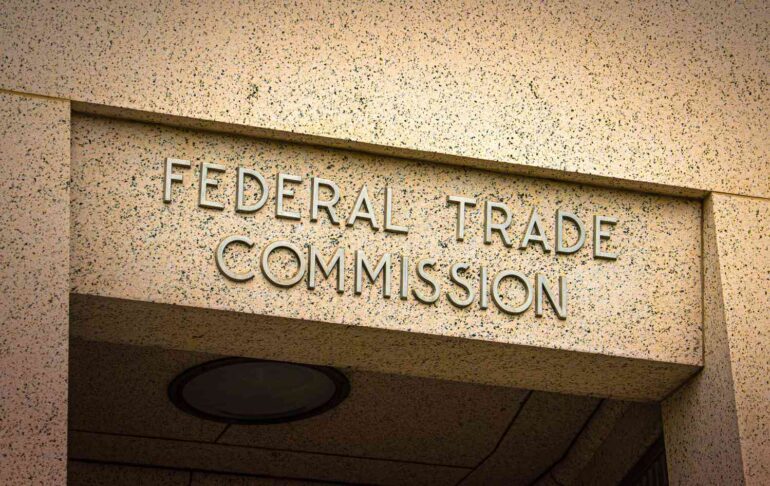TL;DR:
- The FTC orders OpenAI, Microsoft, Alphabet, Amazon, and Anthropic to provide information about recent generative AI investments and partnerships.
- Generative AI technology has raised concerns about national security, influence operations, and fraud.
- Antitrust concerns arise from deals between major players and Big Tech in the generative AI sector.
- The FTC aims to scrutinize the impact of these deals on competition, pricing, access, and personnel decisions.
- Microsoft and Google pledge cooperation, emphasizing the benefits of industry partnerships.
- Google hopes the inquiry will bring transparency to companies with a history of being less open.
- The FTC previously outlined areas of potential anticompetitiveness and committed to addressing unfair competition practices.
- Corporate investors dominate AI funding, accounting for 90% of generative AI fundraising in 2023.
- Discussions are underway about which agency will investigate OpenAI for antitrust concerns.
- OpenAI and Anthropic, both specializing in foundation models, have attracted substantial funding.
- Big Tech’s funding methods, including cloud credits, have drawn attention within the startup community.
Main AI News:
The United States Federal Trade Commission (FTC) has set its sights on OpenAI, Microsoft, Alphabet, Amazon, and Anthropic, demanding information regarding recent investments and collaborations within the generative AI sector and cloud service providers. This development underscores the increasing scrutiny generative AI technology faces worldwide, with concerns centered around its potential implications for national security, amplification of influence operations, and its susceptibility to fraudulent use.
The consolidation of deals between major industry players and tech giants has sparked significant antitrust apprehensions. The FTC’s directives enable the agency to delve deep into the intricacies of agreements involving Microsoft, Google, and Amazon with AI providers. This inquiry seeks to comprehend the impact of these alliances on competition in the field.
Former FTC Chair, William Kovacic, who now teaches at George Washington University law school, emphasized the agency’s vigilance, stating that it is closely monitoring developments. He asserted that should the need for regulatory action arise, the FTC would be well-prepared.
The comprehensive document request from the FTC seeks insights into how partnerships with Big Tech entities influence strategic decisions, product and service pricing, access provisioning, and personnel management. Exclusivity agreements are also under the regulatory microscope. The companies in question have 45 days to respond to these orders.
Microsoft expressed its commitment to cooperating with the FTC, asserting that collaborations between independent companies like Microsoft and OpenAI promote competition and innovation. Rima Alaily, Microsoft’s corporate vice president for competition and market regulation, emphasized the positive impact of such partnerships.
Google, on the other hand, expressed hope that this inquiry would bring greater transparency to companies that have a history of being less open and have a tendency to lock-in customers.
Last June, FTC staff highlighted areas of potential anticompetitiveness and emphasized their commitment to utilizing all available tools to address unfair competition practices. The importance of competition in the domains of data, talent, and computational resources was underscored.
FTC Chair Lina Khan, during her inaugural visit to Silicon Valley, announced the agency’s focus on studying the extent to which AI technology has been dominated by a select few corporations.
Corporate investors, including Microsoft and Amazon, have been dominant in AI funding, accounting for 90% of generative AI private fundraising in 2023, a significant increase from previous years.
In recent news, Politico reported that discussions are underway between the U.S. Justice Department and the FTC to determine which agency will investigate ChatGPT maker OpenAI on antitrust grounds, particularly concerning its partnership with Microsoft. Microsoft’s substantial investment in OpenAI has drawn scrutiny in the context of antitrust concerns.
OpenAI and Anthropic, both startups specializing in foundation models, develop AI systems trained on vast datasets. Their significant funding has accounted for over 10% of total U.S. venture funding for startups in the past year, as reported by PitchBook data.
Notably, Anthropic has secured agreements to raise substantial funding from Amazon and Alphabet, further intensifying the focus on the influence of Big Tech in this space. The manner in which Big Tech provides funding, including the use of cloud credits, has raised questions within the venture and startup community.
Conclusion:
The antitrust investigation into OpenAI and Anthropic’s dealings with Big Tech highlights growing regulatory scrutiny of the generative AI sector. This scrutiny may lead to increased oversight and potentially impact the competitive landscape, pricing strategies, and access to AI technologies, signaling the need for companies to be more transparent and proactive in addressing regulatory concerns.

